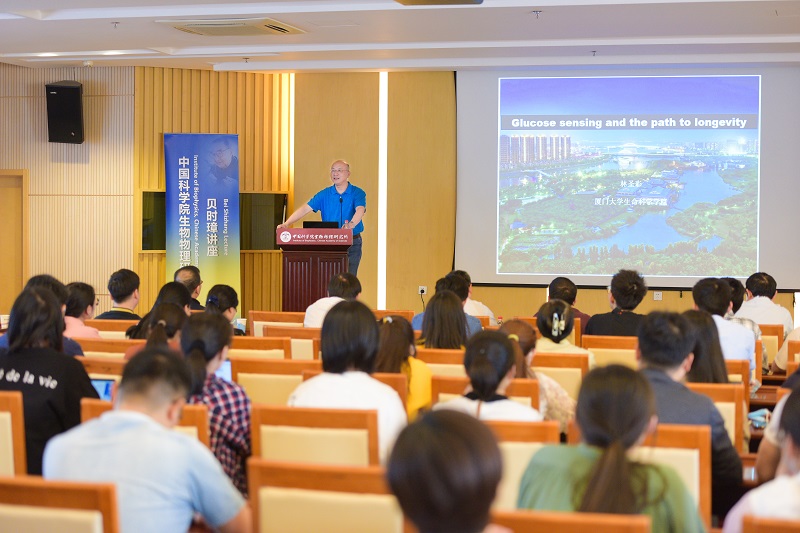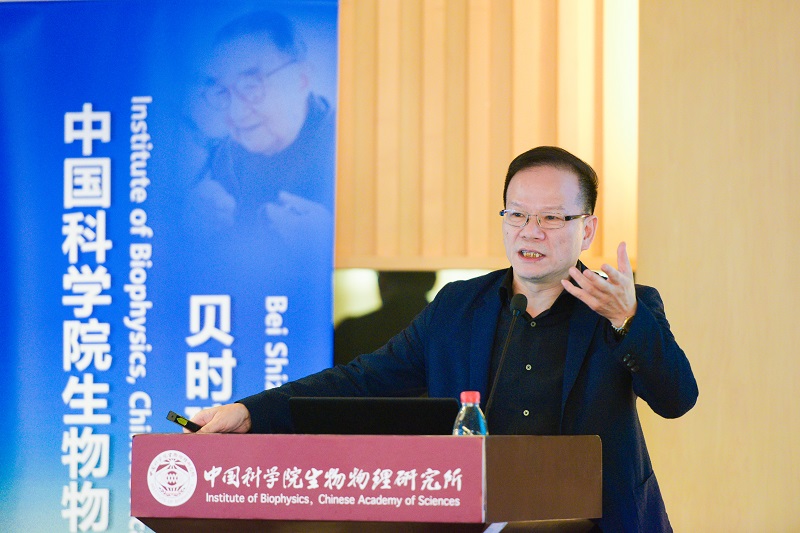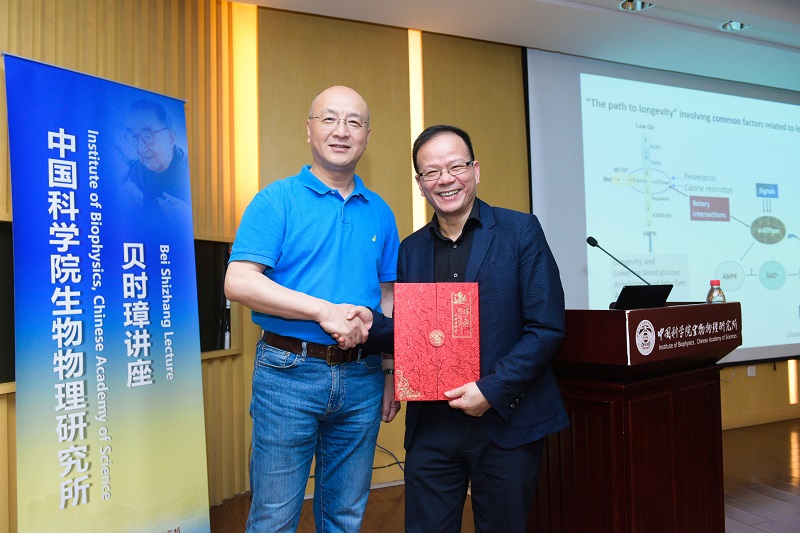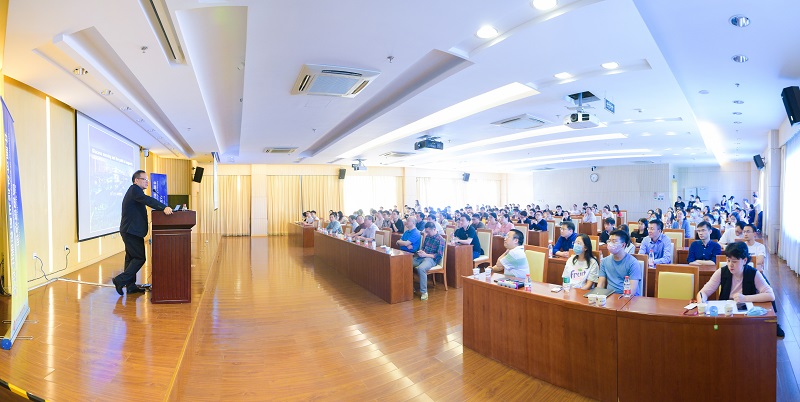Professor Shengcai Lin from Xiamen University visited IBP and gave a Bei Shizhang Lecture
On May 12, 2021, Professor Shengcai Lin from Xiamen University, was invited to visit the Institute of Biophysics (IBP) and delivered a Bei Shizhang Lecture entitled Glucose sensing and the path to longevity. The lecture was hosted by Prof. Ruiming Xu. Researchers and students from IBP and other institutes participated in the report.
Prof. Shengcai Lin serves as the Dean of the School of Life Sciences of Xiamen University. He is the Changjiang Distinguished Professor awarded by Ministry of Education, the Chief Scientist of the National Major Research Program, and the winner of the National Science Fund for Distinguished Young Scholars. Prof. Shengcai Lin's team have dedicated to the study on the maintenance of cell metabolic homeostasis and the mechanism of cell growth regulation. With the goal of dissecting the mechanisms of cellular perception of nutrients and energy, as well as the development of metabolic disorders related diseases, he has made a series of important achievements. Up to date, Prof. Lin has published hundreds of SCI papers that have already been cited for more than ten thousand times. The achievements "Molecular mechanism of autophagy induced by nutrient deficiency" in 2012 and "Glucose perception and its biological significance" in 2017, were selected as "Top Ten Advances in Science in China" and "Top Ten Advances in Life Science in China", respectively.
In the lecture, Prof. Lin shared his representative work about the mechanism of cellular autophagy induced by growth factor deficiency and modulation of glucose metabolic flux (Science, 2012, Molecular Cell, 2016); lysosomal pathway by which cells sense glucose deficiency; discovery of "glucose receptor" and AMPK activation (Cell Metabolism, 2013, 2014; Nature, 2017; Cell Research, 2019). These findings break the stereotype that AMPK activation is only controlled by AMP concentration, in turn elucidate the mechanisms of AMPK activation promoted by metformin through lysosomal AMPK pathway and glucose deficiency sensed by aldolase from TRPV calcium ion channel. The results reveal a spatiotemporal regulation network of AMPK activation under various stress states, allowing a fully understanding of glucose sensing and response. In addition, Prof. Lin has made novel progress in energy metabolism, including the discovery of mammalian AIDA as a "waste gene" functioning in fat absorption, synthesis and storage, and the key role of the glycerol phosphatase Lipin1 in the synthesis of triglycerides, and so on.
The lecture was impressive for the rich content, as well as vivid and humorous presentation. Prof. Lin and the audience had extensive communication on the topic of common interests.

Prof. Ruiming Xu hosted the lecture

Prof. Shengcai Lin was giving the lecture

Prof. Ruiming Xu and Prof. Shengcai Lin

The audience

